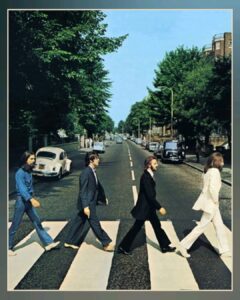
A Legacy Shadowed by Personal Tragedies.

Eric Clapton, celebrated as one of the greatest guitarists of all time, is known for his remarkable contributions to music, spanning blues, rock, and beyond. However, beneath the glittering surface of his career lies a profound narrative of personal heartbreak and loss. Clapton’s legacy is inextricably linked to the tragedies that have shaped his life and, in turn, influenced his music.
Clapton’s early years were marked by a sense of abandonment and loss. Born in 1945 in Ripley, Surrey, Clapton’s father was a soldier who left before he was born. Clapton’s mother, who returned to Canada when he was young, left him in the care of his grandparents. This early separation from his parents instilled in Clapton a profound sense of isolation and yearning, themes that would later surface in his music.
The death of Clapton’s son, Conor, in 1991, stands as one of the most devastating moments in his life. Conor fell from a window in a New York City apartment, a tragedy that not only left Clapton grappling with intense grief but also significantly impacted his career. Conor’s death became a turning point for Clapton, deeply affecting his emotional and artistic expression. The profound sadness and sense of loss Clapton felt were channeled into his 1992 “Unplugged” album, most notably in the song “Tears in Heaven.” The track, written as a poignant reflection on his son’s death, explores the themes of mourning and the hope of a reunion in the afterlife. Its haunting lyrics and melancholic melody encapsulate Clapton’s heartache and his struggle to come to terms with his loss.
Clapton’s personal tragedies didn’t end with Conor’s death. His struggles with addiction have also been a significant source of suffering. Clapton’s battle with heroin and alcohol in the 1970s and 1980s was not only a personal struggle but also had a profound impact on his professional life. The turbulent period saw him oscillate between creative highs and devastating lows, mirroring the chaos of his personal life. His recovery from addiction in the late 1980s was a crucial turning point, but it came at the cost of considerable personal pain and public scrutiny.
Another poignant aspect of Clapton’s life is his relationship with his daughter, Ruth. Born from an affair with a woman named Yvonne Kelly, Ruth was initially kept out of the public eye. Clapton’s relationship with Ruth and her mother was strained, adding another layer of personal conflict to his life. The complexities of this relationship, coupled with his previous experiences of loss and heartache, have undoubtedly influenced his music and public persona.
Clapton’s music serves as both a cathartic outlet for his personal pain and a way to connect with others experiencing similar grief. His ability to convey deep emotional truths through his music is partly a result of his own experiences with loss. While his technical prowess on the guitar is well-recognized, it is his emotional depth and vulnerability that resonate most powerfully with his listeners. His songs often reflect a nuanced understanding of sorrow, redemption, and hope, offering solace and connection to those who listen.
Despite the profound personal tragedies that have shadowed Clapton’s career, his resilience and artistic brilliance have allowed him to continue making significant contributions to music. His ability to transform his heartache into powerful, relatable art underscores the profound connection between personal experiences and creative expression. Eric Clapton’s legacy, marked by both extraordinary musical achievements and personal sorrow, stands as a testament to the complex interplay between an artist’s life and work. His story reminds us that behind every masterpiece is a human experience, often marked by profound hardship and heartache.







